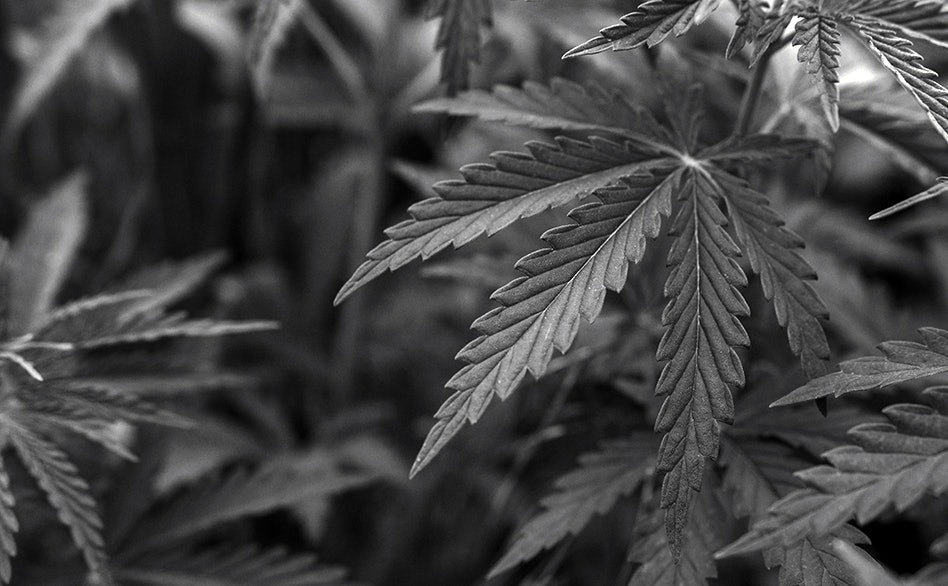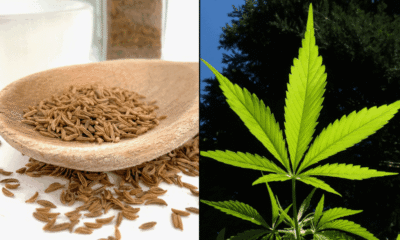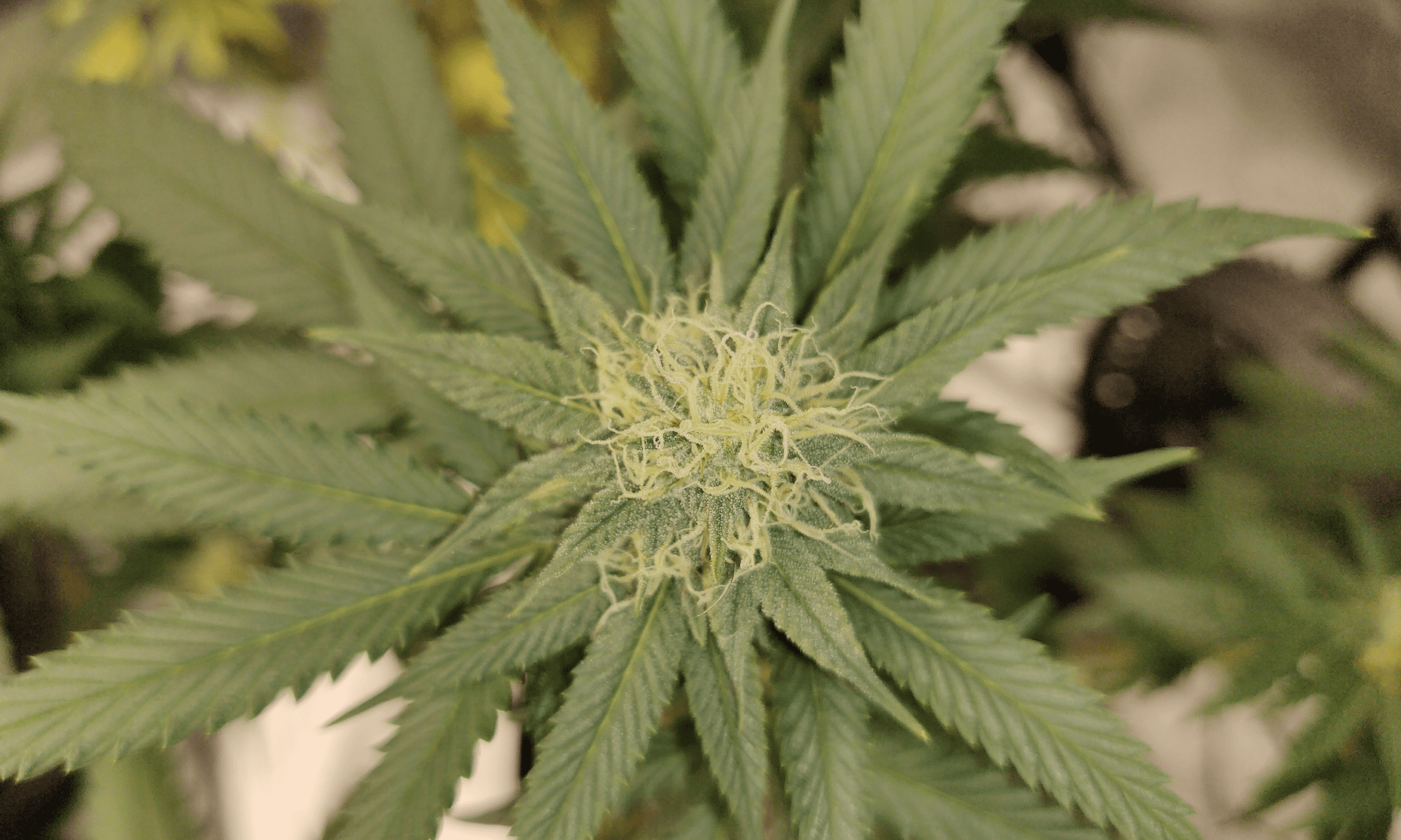featured
Massachusetts Ballot Campaign to End Adult-Use Cannabis Market ‘On Track’ to Collect Enough Signatures
Published
2 days agoon

The signature-gathering phase is “going well” for a coalition that’s aiming to put a question before Massachusetts voters that would backtrack on adult-use cannabis legalization by wiping out the state’s licensed industry.
Massachusetts Attorney General Andrea Joy Campbell certified the petition, “An Act to Restore a Sensible Marijuana Policy,” last month, and now the group has until Dec. 3 to collect 74,574 valid signatures from registered voters to have a shot at qualifying for the November 2026 ballot.
The campaign organizers aim to submit more than 100,000 signatures to the secretary of state, providing a cushion in anticipation of the state’s vetting process to ensure the signatures are valid, group spokesperson Wendy Wakeman told Cannabis Business Times.
“The signature phase is going well. It’s on track,” she said. “The whole process, the initiative petition process, isn’t easy. … While we need to collect 74,000 [signatures], we actually have a goal of collecting over a hundred thousand, and that’s because there are two different vetting processes that the signature sheets, the petitions, will go through.”
Local elections officials must review the signatures by Nov. 19 to ensure they’re from registered voters and match what’s on file, before the petitions are filed with Secretary of State William Galvin’s office two weeks later. Galvin’s office will perform the final count and can toss any petition sheets that are incomplete or mutilated.
“The process at every step is political,” Wakeman said, adding that a coalition of parents, doctors, mental health professionals, educators and others is concerned about the negative effects of cannabis, particularly on youth. This concern serves as the genesis of the campaign to effectively end a $1.6 billion retail industry in Massachusetts that has been serving those 21 and older since dispensary sales launched in 2018.
“[They’re looking at] the impact that the growth of marijuana use has had on the quality of life, the increase in DUI stops, the increase in child poisonings and in pet poisonings,” she said. “There’s a group that coalesces around the idea that we moved too far too fast with marijuana legalization, and that it’s not working well for Massachusetts.”
Meg Sanders, CEO and co-founder of Western Massachusetts-based Canna Provisions, argues that the commonwealth rolled out a highly regulated system that helps ensure cannabis is lawfully grown and sold through a tested, tracked and taxed system that voters approved in the November 2016 election.
The attempt to repeal the state’s program and ban home grows wouldn’t remove demand; it would shift cannabis back to an unregulated, irresponsible system for consumers, Sanders told CBT.
“First and foremost, this question has been asked and answered,” she said. “I believe the voters showed up in 2016 and stated exactly what they wanted to see, which was a regulated cannabis market for adults. … I really hope we don’t have to ask and answer it again.”
For Sanders’ part, she’s tackling the initiative petition head-on through a “do not sign” campaign. Sanders also penned a column this month in the Berkshire Business Journal, telling readers that the 2026 proposal would create chaos for town budgets throughout Berkshire County.
With roughly 130,000 residents, Berkshire County represents nearly 2% of the state’s population and is the beneficiary of more than half a billion dollars in taxed cannabis sales.
Licensed cannabis businesses don’t just support some 27,000 industry workers in Massachusetts, but they also support “contractors, bookkeepers, HVAC technicians, drivers, and the restaurants and inns they patronize,” Sanders wrote.
The cannabis CEO said that while politics is not on the initiative petition’s side, she’s hoping industry stakeholders can nip it in the bud before it potentially lands on the ballot.
Under current market dynamics, cannabis businesses have plenty of other fish to fry, Sanders told CBT; however, the 2026 ballot proposal represents a real threat, and licensed adult-use businesses must pull their resources to defeat it, she said.
“I think prohibition in any form is a real threat, and I think we have to keep our eye on the ball and not assume and not just go about our merry way,” she said. “We’ll talk about it with our customers. We’ll make sure that they’re very aware of it. Please ask them to tell their friends. I just feel like we don’t know what the money behind this initiative is. We don’t understand exactly what’s backing this, but in my opinion, any threat to freedom is a threat that we need to look at.”
The initiative petition organizers don’t see it that way.
While Wakeman is now the spokesperson behind the initiative petition to do away with Massachusetts’ adult-use cannabis program, she wasn’t among the 15 Massachusetts residents who signed the proposal that the attorney general certified last month.
Among the signers were four Massachusetts Republican State Committee members, including Caroline Cunningham, David Lunger, Kathleen Lynch and Timothy Smyth. Cunninham, a political consultant, campaign manager and professional fundraiser, aligned with Smart Approaches to Marijuana (SAM) to defeat a psychedelics legalization ballot measure last year in the commonwealth.
In leading the charge to undo adult-use cannabis legalization in Massachusetts, Cunningham told The Boston Globe in August that the “true purpose” of the initiative is to shut down licensed dispensary sales. “The goal is not to arrest people for simple personal possession,” she said.
Under the proposal, possessing up to 1 ounce of cannabis or 5 grams of concentrate would be decriminalized for those 21 and older, and the state’s medical program would still exist. In 2024, medical cannabis sales made up 9% – roughly $162 million – of the state’s overall licensed marketplace, according to the Massachusetts Cannabis Control Commission (CCC).
While the petition would not eliminate medical cannabis dispensary sales, many patients fear that the certified proposal would implement potency caps of 30% THC on medical flower and 60% THC on medical concentrates, as well as prohibit concentrated forms of medical cannabis that fail to provide a metered delivery serving of 5 milligrams of THC with no more than 20 metered doses (100 milligrams) per package.
Those provisions were included in “Version A” of the group’s two certified petitions; however, Wakeman told CBT that the group plans to solely pursue collecting signatures for “Version B,” which does not include the potency caps and metered dose proposals.
“It is not the one with the THC cap,” she said. “We’re focusing on a petition that rolls back recreational pot stores and the legality of home-grown recreational marijuana.”
Also among the 15 petitioners who signed the now-certified proposal was Nassir Ghaemi, M.D., former president of the Massachusetts Psychiatric Society and a professor of Psychiatry at Tufts Medical Center in Boston. He specializes in depression and bipolar illness.
In addition, unsuccessful Brockton mayoral candidate Richard Reid and his wife, Lynn Reid, also signed the certified proposal. Reid, a pastor of the North Baptist Church in Brockton for the past 17 years, has opposed cannabis legalization since adult-use sales first began in the commonwealth. In May 2018, the city council’s Finance Committee invited Reid to discuss his “concerns with the sale of recreational cannabis in the City of Brockton.”
While Massachusetts voters supported legalization in the 2016 election, those pushing the 2026 proposal to end the adult-use program argue that cannabis reform has failed to live up to its promises.
“One of the things we were sold when voting to accept looser cannabis rules was that the black market would go away, and that just hasn’t happened,” Wakeman said. “The black market is still thriving. … We’ve seen a reduction in crime, because we’re no longer punishing the guy who has a dime bag in his pocket or whatever. But in terms of organized crime, corruption and graft, it hasn’t gone away.”
Cannabis industry advocates often argue that some of the largest contributors to the illicit cannabis market are high taxes, municipal opt-outs (cities that ban dispensaries), shortcomings in track-and-trace systems and restrictive state policies such as prohibition.
Some state markets have struggled to rein in unregulated cannabis activity compared to their legalization peers.
New York, for example, has yet to implement a seed-to-sale tracking system nearly three years after launching adult-use dispensary sales. In California, 53% of cities and counties still ban cannabis businesses, and state residents consume nearly twice as much unregulated cannabis as regulated cannabis, according to the state’s Department of Cannabis Control.
Meanwhile, Arizona requires a self-reporting track-and-track model where licensees are free to use their own software systems to report inventory to the state’s Department of Health Services. Most state cannabis programs mandate a third-party software system, such as Metrc or BioTrack, for their seed-to-sale tracking.
Sanders argues that Massachusetts has one of the strictest regulatory structures for its licensed marketplace and that legalization was never meant to completely eradicate the unregulated market.
“What I know for sure in Massachusetts is we use a seed-to-sale tracking method that is required by the state. Every gram has to be accounted for and has to be counted and recounted,” she said. “What I know for sure is that if you eliminate the adult-use market, you will see a massive increase in the illicit market.”
Instead of backtracking on legalization, Sanders encourages awareness of the guardrails surrounding the Massachusetts adult-use cannabis program, from the seed-to-sale tracking system to requirements for age-gating, testing, labeling and childproof packaging.
“I think that’s a really important thing,” Sanders said. “Prohibition doesn’t work. The United States has shown this time and time and time again, and this notion that ‘Oh, we’re just going to reinvigorate the medical program’ is just a fool’s errand. That’s really what they want to do. As I mentioned before, there are many things that they could do with the Legislature and the CCC to make the medical program stronger here in Massachusetts.”
Eliminating regulated and tested adult-use products from the state’s cannabis market would be “terrifying” for consumer safety, she said.

Author: mscannabiz.com
MScannaBIZ for all you Mississippi Cannabis News and Information.
You may like
-


Millennials Are Spending Big on Luxury Travel
-


Ohio Lawmakers Advance Bill To Scale Back Voter-Approved Marijuana Law And Impose Hemp Regulations
-


Data Confirms Cannabis Is Safer Than Alcohol
-


American Council of Cannabis Medicine Unveils Major Industry Initiative to Expand Medical Cannabis Access
-


Scientists Develop New Class Of CBD Using A Common Kitchen Spice—Not Cannabis
-


Evidence About Burning Mouth Syndrome And Cannabinoids

Millennials redefine indulgence as experiences, not things — airlines adapt as Millennials are spending big on luxury travel.
Luxury isn’t what it used to be. For Millennials, adults in their 30s and early 40s, living luxuriously means swapping pricey gadgets, cars, and designer clothes for something else. Something their parents did later in life. Millennials are spending bing on luxury travel experiences. From Napa Valley wine tours to boutique ski resorts in Colorado, Millennials are redefining what it means to “treat yourself.” And it’s not just happening in the U.S.—they’re doing it worldwide.
RELATED: Gen Z Is Ditching Relationship Labels While Millennials
In the U.S., states like California, New York, Florida, and Texas are seeing a boom in experiential travel. Millennials are putting more of their disposable income into curated trips, wellness retreats, and boutique hotels—sometimes choosing these experiences over traditional material luxuries.
Globally, destinations are feeling the impact too. European Millennials are flocking to Portugal’s Douro Valley for vineyard tours and Italy’s Amalfi Coast for boutique stays. In Asia, young travelers are splurging on private island resorts in the Maldives and eco-lodges in Bali. Even in Africa, safari trips in South Africa and Kenya are attracting Millennials looking for immersive, Instagram-worthy adventures.

Why the shift? Millennials came of age during tough economic times—from the Great Recession to rising housing costs and inflation. Many have decided memories beat things which depreciate quickly. Social media also plays a role: a picture-perfect vacation is now a status symbol in itself.
Millennials favor “quiet luxury”—understated but high-quality experiences. They prefer boutique hotels, local cuisine, private tours, and eco-friendly resorts over flashy, mass-market offerings. Whether it’s a wine tasting in California or a wellness retreat in Thailand, this generation seeks personalization, authenticity, and sustainability.
Airlines are taking notice. Carriers like Delta, Air France, and Emirates are rolling out perks aimed squarely at Millennials. Think flexible booking, wellness-focused amenities, upgraded seating options, and loyalty programs rewarding experiences rather than just miles. Boutique airline partnerships with resorts, curated city guides, and even “Instagram-ready” lounges cater to this generation’s desire for travel that’s luxurious but meaningful. Some airlines are even offering subscription-style models or bundled travel packages appealing to Millennials who prioritize experiences over possessions.
RELATED: Cannabis Is Way Better And Safer Than A Honey Pack
This trend shows Millennials define luxury differently: it’s freedom, experiences, and personal growth—not what you own. Many are spending on travel instead of expensive cars, big homes, or designer brands. And as Millennials hit peak earning years, the global luxury travel market is set to grow even more.
For Millennials, luxury isn’t just a price tag—it’s an experience you remember, share, and treasure.
Top Millennial Luxury Travel Hot Spots
- California, USA: Wine country, coastal retreats, and wellness resorts.
- Portugal: Vineyard stays and scenic surf towns.
- Bali, Indonesia: Eco-lodges and spiritual wellness retreats.
- Italy: Amalfi Coast villas and food-driven cultural tours.
- Kenya & South Africa: Luxe safaris with sustainability built in.
- Iceland: Adventure and geothermal spas in minimalist luxury.
Airlines Leaning In
- Delta Air Lines: Expanding premium cabin and wellness-focused menus for “mindful flyers.”
- Emirates: Instagram-worthy lounges and inflight luxury appealing to Millennials’ visual storytelling.
- Air France & KLM: Personalized travel guides, flexible booking, and eco-conscious options.
- JetBlue Mint: Affordable luxury with craft cocktails and small-brand partnerships.

Author: mscannabiz.com
MScannaBIZ for all you Mississippi Cannabis News and Information.
featured
Ohio Lawmakers Advance Bill To Scale Back Voter-Approved Marijuana Law And Impose Hemp Regulations
Published
4 hours agoon
October 21, 2025
Ohio House lawmakers on Tuesday approved an amended Senate-passed bill that would make significant changes to the state’s voter-approved marijuana legalization law while incorporating a series of regulations for hemp that are meant to align the two sectors of the cannabis industry.
Members of the House Judiciary Committee agreed to changes to the measure from Sen. Stephen Huffman (R) before advancing it to other panels and an expected floor vote on Wednesday. But while certain controversial provisions of the bill as passed by the Senate were scaled back, it would still make major changes to the marijuana law voters approved in 2023.
The measure will now go to the Rules Committee before being re-referred to the Finance Committee, after which point it’s expected to receive floor action.
“We’ve had years of testimony. We’ve heard from marijuana advocates, hemp advocates, public health advocates and everyone in between,” Rep. Brian Stewart (R) said. “We are generally going to take the feedback from the hemp industry, which said, ‘Treat us like marijuana,” he said. “They will have the same potency limitations, the same advertising restrictions, the same restrictions on quantities, serving size and how they operate.”
Rep. Jamie Callender (R), who has led the charge on marijuana policy in the House, said ahead of the vote that the revised bill would be “very thoughtful and targeted.” But at the hearing, he added that the legislation is “not perfect” or what he would have drafted.
“It’s a bill that can get passed that will help us implement some of the elements of Issue 2 that have been held up and give clarity to the rulemakers on some of the points that are outstanding,” he said, referring to the voter-approved legalization measure. “It also clarifies and cements a few of the gains that were gained over the years: Sharing, home grow, no new prosecutions [and] the taxes going to the local governments.”
“We’ve got more work to do. We are not done.”
Under the amended legislation, stores and breweries would be permitted to sell hemp-derived THC beverages, with new advertising restrictions meant to prevent appealing to youth. Products for on-site consumption would be limited to 5 mg of THC, but adults could buy take-home drinks containing up to 10 mg. More potent drinks could also be manufactured in Ohio, but only for sales to people outside the state.
There would be a new $1.20 tax per gallon on hemp beverages created by the bill, and Stewart said it will “create a pathway for legal, regulated, licensed hemp dispensaries.”
“Nobody has ever voted to allow functionally equivalent products to marijuana—hemp products—to be sold in 6,000 plus gas stations and grocery stores around the state,” he said. “And so with this bill, we would say that you can buy intoxicating hemp products in licensed hemp dispensaries. We are not going to have intoxicating hemp available to any establishment that admits persons who are under the age of 21.”
Advocates remain concerned about other marijuana-related provisions of the Senate bill that were left intact. That includes the elimination of language in the current voter-approved law providing anti-discrimination protections for people who lawfully use cannabis and the recriminalization of possessing marijuana from any source that isn’t a state-licensed dispensary.
“It is profoundly disappointing to see the House Judiciary Committee advance legislation to roll back cannabis freedoms and protections that Ohio voters overwhelmingly approved,” Karen O’Keefe, director of states policies at the Marijuana Policy Project (MPP), told Marijuana Moment. “The committee substitute would open the door to harassment and interrogation of cannabis consumers by criminalizing any cannabis that wasn’t home grown or obtained from an Ohio retailer. It would also remove protections that prevent responsible cannabis consumers from losing their children, professions, and even their lives for cannabis use.”
The legislation also bans smoking cannabis at outdoor public locations such as bar patios, and it allows landlords to prohibit vaping marijuana at rented homes.
In short, the proposal “continues to gut the voter-enacted law,” O’Keefe said in a letter to Judiciary Committee members ahead of Tuesday’s hearing.
“Please reject this erosion of freedoms enacted by 57 percent of voters,” she said, adding that the legislation as amended “will lead to interrogations over the source of cannabis and arrests over conduct voters legalized.”
“The bill also allows families to be ripped apart, professions lost, and lives destroyed for responsible cannabis use—by repealing voter-enacted protections to prevent such suffering,” she said. “Please remove all language amending Issue 2, or at least slow the process down. Voters and stakeholders deserve a chance to review language before their law is gutted.”
Unlike the Senate-passed version of the legislation, the House substitute will send tax revenue from cannabis sales to local governments.
Rep. Desiree Tims (D) said at the hearing that she still has “concerns about the criminal justice implications” of the substitute bill, inquiring of the sponsor about expungement provisions.
“My number one fear is that we are in the process of legalizing something where a select few will become very, very wealthy, while people continue to suffer from past activities–whether recreational or otherwise—utilizing the very same products that we are allowing people to make a profit off,” she said.
Stewart said the bill does contain a pathway for people with prior cannabis possession convictions to have their records expunged if they proactively petition the courts, and that process would be “expedited,” albeit not automated as is in the case in certain other legal marijuana states.
Members of the committee separately approved an amendment from Rep. Josh Williams (R) to revise the expungement process for eligible past cases by making it incumbent on the state to proactively defend any decision to deny a person’s request to seal their record.
Another lawmaker raised a question about disparate penalties for the sale of hemp or marijuana to minors compared to alcohol, and Stewart replied that the Republican caucus is “comfortable with the penalty being higher for marijuana and intoxicating hemp.”
“I think that’ll probably be a source of continued debate as Ohioans kind of get used to a fairly substantial new landscape here,” he said. “Rightly or wrongly, I still think there is a view that we’re a little more concerned about selling kids weed than Miller Lite.”
Tuesday’s hearing comes weeks after DeWine issued emergency rules prohibiting the sale of intoxicating hemp products for 90 days, with instructions to the legislature to consider permanent regulations. Last week, however, a county judge enjoined the state from enforcing that policy in response to a legal challenge.
“Frankly, the legislature had not taken action,” Gov. Mike DeWine (R) said in an interview published this week. “I’m still hopeful that the legislature will come in and actually take action.”
House Speaker Matt Huffman (R) commented recently on the relative lack of progress in advancing marijuana and hemp legislation since voters approved legalization at the ballot in 2023, noting substantive divides within the Republican caucus.
There are “folks who believe that marijuana should be legalized and regulated,” others “who believe that the hemp products should be on equal standing with everything that happened in the initiated statute and then “folks, like me, who are prohibitionists, who don’t think it should be legalized at all and it should be rare,” he said.
“I would say the prohibitionists have largely lost this discussion.”
—
Marijuana Moment is tracking hundreds of cannabis, psychedelics and drug policy bills in state legislatures and Congress this year. Patreon supporters pledging at least $25/month get access to our interactive maps, charts and hearing calendar so they don’t miss any developments.![]()
Learn more about our marijuana bill tracker and become a supporter on Patreon to get access.
—
Meanwhile, last month, the Ohio Department of Cannabis Control (DCC) filed new proposed rules to build upon the state’s marijuana legalization law, laying out plans to update regulations on labeling and packaging requirements.
The proposal came weeks after Ohio medical and adult-use marijuana sales officially crossed $3 billion, data from the state Department of Commerce (DOC) shows.
The state sold about $703 million in recreational cannabis in the law’s first year of implementation, according to DCC data.
In March, a survey of 38 municipalities by the Ohio State University’s (OSU) Moritz College of Law found that local leaders were “unequivocally opposed” to earlier proposals that would have stripped the planned funding.
Meanwhile in Ohio, adults as of June are able to buy more than double the amount of marijuana than they were under previous limits, with state officials determining that the market can sustainably supply both medical cannabis patients and adult consumers.
The governor in March separately announced his desire to reallocate marijuana tax revenue to support police training, local jails and behavioral health services. He said funding police training was a top priority, even if that wasn’t included in what voters passed in 2023.
Ohio’s Senate president has also pushed back against criticism of the Senate bill, claiming the legislation does not disrespect the will of the electorate and would have little impact on products available in stores.
Photo courtesy of Mike Latimer.

Author: mscannabiz.com
MScannaBIZ for all you Mississippi Cannabis News and Information.

Cannabis is a hot topic on Capital Hill and online – but what are the facts? Data confirms a key issue about the plant.
The medical community has come out and said cannabis has medical benefits. Despite this, some older congress members are concerned about the harmful effects of the plant. But data confirms cannabis is safer than alcohol. The overall burden of disease and injury from alcohol far exceeds those of marijuana. For example Australia, alcohol accounted for 3.2% of the disease and injury, while marijuana accounted for only 0.2%. The effects are clear and 88% of the public believe it should be legal in some form.
RELATED: Science Says Medical Marijuana Improves Quality Of Life
The debate over the safety of marijuana versus alcohol has been ongoing for years, with evidence demonstrating marijuana poses significantly fewer health and safety risks than alcohol. Data supports the marijuana is safer as an alternative to alcohol by examining health impacts, addiction rates, and societal effects. Already Gen Z sees it has a better lifestyle choice by choice to be California sober.
Alcohol use is strongly linked to violent crimes, with estimates suggesting that 25-30% of violent crimes in the U.S. are alcohol-related. In contrast, marijuana use is not commonly associated with violence or crime

Here is more information about the difference between cannabis and marijuana.
- Mortality Rates: Alcohol use is associated with tens of thousands of deaths annually in the United States, primarily due to chronic alcohol use and alcohol-related accidents. In contrast, there have been no documented cases of fatal marijuana overdoses.
- Health-Related Costs: The health-related costs for alcohol consumers are substantially higher than those for marijuana users. A study found that the annual cost per alcohol user is approximately $165, compared to just $20 per marijuana user.
- Neurological Effects: Alcohol consumption is known to cause permanent brain damage, whereas marijuana has been found to have neuroprotective properties.This suggests marijuana may not only be less harmful but can be beneficial in certain neurological contexts.
- Addiction Potential: Marijuana is less addictive than alcohol. While some individuals may develop dependence on marijuana, it is less severe and less common than alcohol dependence. Alcohol use can lead to severe physical withdrawal symptoms, which are not observed with marijuana.
- Dependence and Tolerance: Alcohol users are more likely to develop tolerance and dependence compared to marijuana users. This indicates that alcohol poses a greater risk of long-term addiction issues.
In addition, alcohol increases risk-taking behavior, contributing to accidents and injuries, whereas marijuana does not seem to increase such behavior. This difference is crucial in understanding the societal impact of these substances.
Data overwhelmingly supports the conclusion that marijuana is safer than alcohol in terms of health risks, addiction potential, and societal impact. As marijuana use becomes more prevalent, understanding these differences is crucial for informed policy-making and public health strategies.
While both substances carry risks, the evidence suggests that marijuana poses fewer dangers to both individuals and communities compared to alcohol. This understanding can help guide more rational and evidence-based approaches to substance regulation and public health initiatives.

Author: mscannabiz.com
MScannaBIZ for all you Mississippi Cannabis News and Information.

Millennials Are Spending Big on Luxury Travel

Ohio Lawmakers Advance Bill To Scale Back Voter-Approved Marijuana Law And Impose Hemp Regulations

Data Confirms Cannabis Is Safer Than Alcohol

American Council of Cannabis Medicine Unveils Major Industry Initiative to Expand Medical Cannabis Access

Scientists Develop New Class Of CBD Using A Common Kitchen Spice—Not Cannabis

Evidence About Burning Mouth Syndrome And Cannabinoids

Raw Garden Acquires ‘California Love’ to Grow Clean Cannabis Movement

Rhode Island Marijuana Officials Approve Timeline For Awarding New Dispensary Licenses

‘Rent-a-License’ Scheme Highlights New York Cannabis’s Track-and-Trace Problem

Alcohol Industry Steps Up Lobbying On Hemp Drinks As Congress Debates THC Ban

Cannabis Mogul Appointed Ambassador To Middle East Country

Pennsylvania Senators Approve Bipartisan Cannabis Bill To Create New Regulatory Body

Ahead Of New Jersey Governor Election, GOP Candidate’s Comments On Marijuana As A ‘Gateway Drug’ Resurface

Urgent Action Needed To End US Marijuana Arrests

Supreme Court takes up cannabis & gun rights case (Newsletter: October 21, 2025)

What Winning Looks Like: The New Jersey Dispensaries Playing a Different Game

Trump Taps Marijuana Industry ‘Visionary’ As Special Envoy To Iraq

Delaware Scam Claiming to Represent State-Licensed Dispensary Offering Illegal Cannabis Deliveries – Ganjapreneur
New York Should Legalize Psilocybin Therapy, Former Narcotics Prosecutor Says (Op-Ed)

Do Public Votes About Cannabis Matter Currently

Ohio Lawmakers Will Take Up Bill To Revise Voter-Approved Marijuana Law And Add Hemp Market Restrictions This Week

The Best Microdosing Strains For A Rough Week
Rubicon Organics Announces Health Canada Cultivation License For Cascadia Facility

Building Community, One Bagel at a Time

Alert: Department of Cannabis Control updates data dashboards with full data for 2023

Connecticut Appoints The US’s First Cannabis Ombudsperson – Yes there is a pun in there and I’m Sure Erin Kirk Is Going To Hear It More Than Once!

5 best CBD creams of 2024 by Leafly

Recreational cannabis on ballot for third time in South Dakota

EU initiative begins bid to open access to psychedelic therapies
New Study Analyzes the Effects of THCV, CBD on Weight Loss

Free delta-9 gummies from Bay Smokes

5 best autoflower seed banks of 2024 by Leafly

Discover New York’s dankest cannabis brands [September 2024]

Press Release: CANNRA Calls for Farm Bill to Clarify Existing State Authority to Regulate Hemp Products

May 2024 Leafly HighLight: Pink Runtz strain

5 best THC drinks of 2024 by Leafly

Local medical cannabis dispensary reacts to MSDH pulling Rapid Analytics License – WLBT

6 best CBD gummies of 2024 by Leafly

Curaleaf Start Process Of Getting Their Claws Into The UK’s National Health System – With Former MP (Resigned Today 30/5/24) As The Front Man

Horn Lake denies cannabis dispensary request to allow sale of drug paraphernalia and Sunday sales | News

5 best delta-9 THC gummies of 2024 by Leafly

Mississippi city official pleads guilty to selling fake CBD products

The Daily Hit: October 2, 2024

Nevada CCB to Accept Applications for Cannabis Establishments in White Pine County – “Only one cultivation and one production license will be awarded in White Pine County”

5 best THCA flower of 2024 by Leafly

Weekly Update: Monday, May 13, 2024 including, New Guide for Renewals & May Board meeting application deadline

6 best hemp pre-rolls of 2024 by Leafly

PRESS RELEASE : Justice Department Submits Proposed Regulation to Reschedule Marijuana
Trending
-

 California Cannabis Updates1 year ago
California Cannabis Updates1 year agoAlert: Department of Cannabis Control updates data dashboards with full data for 2023
-

 Breaking News1 year ago
Breaking News1 year agoConnecticut Appoints The US’s First Cannabis Ombudsperson – Yes there is a pun in there and I’m Sure Erin Kirk Is Going To Hear It More Than Once!
-

 best list1 year ago
best list1 year ago5 best CBD creams of 2024 by Leafly
-

 Business1 year ago
Business1 year agoRecreational cannabis on ballot for third time in South Dakota
-

 Business1 year ago
Business1 year agoEU initiative begins bid to open access to psychedelic therapies
-

 cbd1 year ago
cbd1 year agoNew Study Analyzes the Effects of THCV, CBD on Weight Loss
-

 Bay Smokes1 year ago
Bay Smokes1 year agoFree delta-9 gummies from Bay Smokes
-

 autoflower seeds1 year ago
autoflower seeds1 year ago5 best autoflower seed banks of 2024 by Leafly



